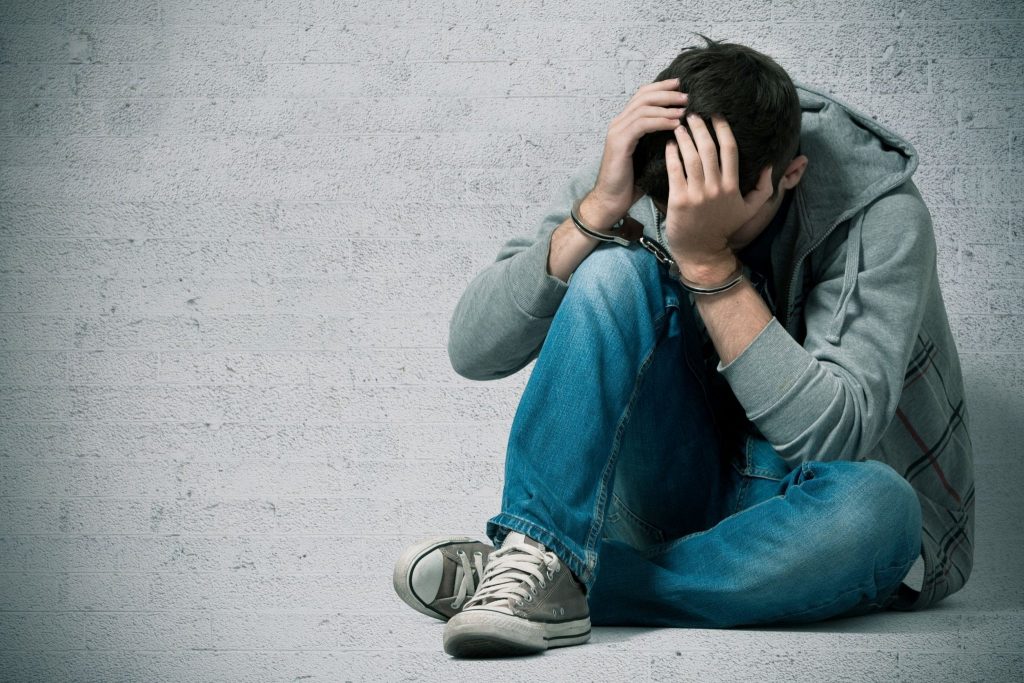
It’s every parent’s worst nightmare: that phone call or knock on the door informing you that your child has been involved in criminal activity, and that they are in legal trouble or have been injured or killed as a result.
As parents, we all do our best to teach our kids the right values and discourage them from making destructive decisions. However, juvenile delinquency is still far too common – even for teens with competent and caring parents.
Why? In adolescence, your child’s brain is not yet fully developed. Although he or she may seem physically mature, the parts of the brain involved in emotion and decision are still in-progress. This means that your child is prone to making impulsive, destructive decisions that aren’t entirely within his or her control. Such as participating in juvenile crimes.
All of this is to say that even the best of teens – with the best possible parents – make bad decisions. That being said, there are some additional factors that influence teens, making them more prone to committing criminal offenses and being saddled with a criminal record.
Peer Group Pressure
As humans, we are all influenced by the views, beliefs, and decisions of our peers. However, the influence and pressure of peers is even more likely to impact your teenager’s beliefs, values, and choices. In fact, peer group pressure is a leading cause of juvenile delinquency.
If your child’s peers are engaged in criminal activity or otherwise encourage destructive decisions, this greatly increases your child’s chances of also becoming involved in criminal activity or drug abuse.
Be aware of who your teen hangs out with. Make an effort to get to know your child’s friends, and also their friends’ parents if possible. If you feel that your child’s peers may be a bad influence, consider stepping in by limiting or supervising the time spent with these peers.
Lack of Communication
When teens have poor communication within their family, this causes them to lose the moral support of those they should be able to rely on. In turn, this eventually lowers teens’ self-esteem and confidence, causing them to do things they shouldn’t to boost that confidence. Likewise, a lack of family communication will also make your teen more susceptible to peer pressure.
If you have a teen at home, you are likely more than aware that communication can be strained with adolescents – to put it mildly. However, encouraging your teen to be engaged in family discourse and remain in touch can be crucial in maintaining good communication. If you find that communication remains problematic, you may consider seeking the help of a family therapist who can help you communicate more effectively with one another.
School Exclusion or Social Isolation
Because teens lack emotional maturity, they are more likely to do things that are hurtful to one another. For example, socially excluding classmates with lower socioeconomic backgrounds, or who otherwise don’t “fit in.”
This social isolation can cause teens to lose their sense of self and find solace in destructive activities. Teens may also seek out the company and support of fellow troubled classmates, often leading to negative peer pressure and increased destructive decisions.
Although relationships among teens are turbulent in nature, ongoing isolation or exclusion is not acceptable. If you find that your child is in a socially vulnerable situation, demand that his or her school take action to prevent bullying or exclusion.
You can also encourage your teen to form friendships outside of school by engaging in a sport or hobby. Outside interests and extracurricular activities have been shown to decrease juvenile crime, as they encourage teens to engage positively with the community, and to form friendships with other like-minded peers who will positively influence behavior.

Remember, even “good” kids with loving, attentive parents make mistakes. There’s no full-proof way to prevent your kid from engaging in juvenile crime. However, remaining engaged in your teen’s life and encouraging positive activities and friendships can reduce the risk you’re your child will develop a pattern of destructive behavior and delinquency. As parents, sometimes that’s all we can do.
About the Author:
After getting his Juris Doctor from the University of Houston Law Center, Jeff Hampton began practicing criminal law in Texas in 2005. Before becoming a defense attorney, he worked as a prosecutor for the Tarrant County District Attorney’s Office – experience he uses to anticipate and cast doubt on the arguments that will be used against his clients. Over the course of his career, he has helped countless Texans protect their rights and get the best possible outcome in their criminal cases. His skill has earned him recognition from the National Trial Lawyers (Top 100 Trial Lawyers) and Avvo (Top Attorney in Criminal Defense, Top Attorney in DUI & DWI, 10/10 Superb Rating), and he is Lead Counsel rated.

